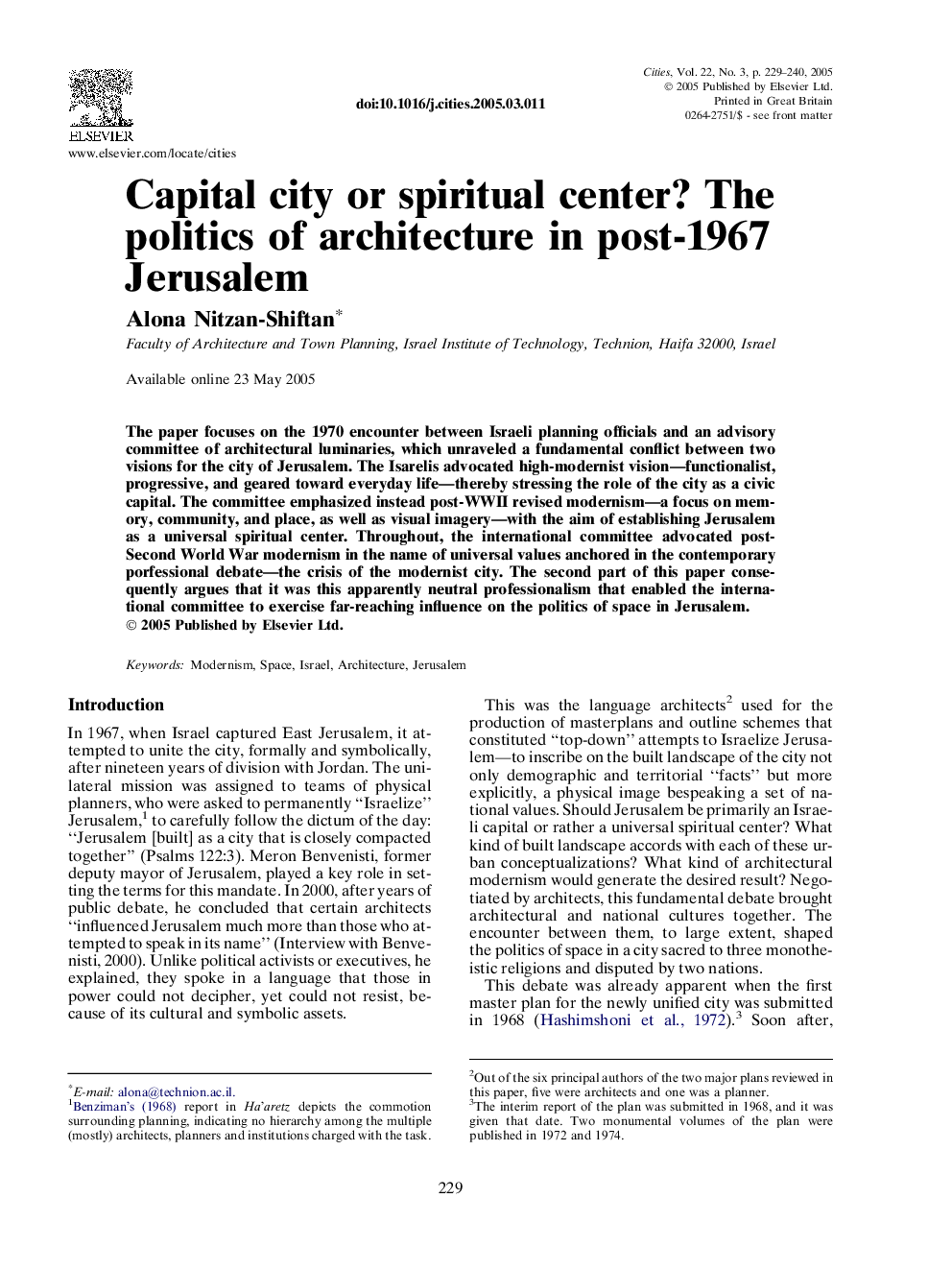| Article ID | Journal | Published Year | Pages | File Type |
|---|---|---|---|---|
| 10489970 | Cities | 2005 | 12 Pages |
Abstract
The paper focuses on the 1970 encounter between Israeli planning officials and an advisory committee of architectural luminaries, which unraveled a fundamental conflict between two visions for the city of Jerusalem. The Isarelis advocated high-modernist vision-functionalist, progressive, and geared toward everyday life-thereby stressing the role of the city as a civic capital. The committee emphasized instead post-WWII revised modernism-a focus on memory, community, and place, as well as visual imagery-with the aim of establishing Jerusalem as a universal spiritual center. Throughout, the international committee advocated post-Second World War modernism in the name of universal values anchored in the contemporary porfessional debate-the crisis of the modernist city. The second part of this paper consequently argues that it was this apparently neutral professionalism that enabled the international committee to exercise far-reaching influence on the politics of space in Jerusalem.
Related Topics
Social Sciences and Humanities
Business, Management and Accounting
Tourism, Leisure and Hospitality Management
Authors
Alona Nitzan-Shiftan,
